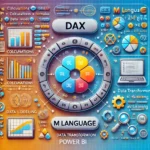Red Hat Enterprise Linux vs. Oracle Linux: A Comprehensive Enterprise OS Comparison
In the world of enterprise-class Linux distributions, two major players, Red Hat Enterprise Linux (RHEL) and Oracle Linux, stand as formidable options. Each has its unique strengths, catering to specific enterprise needs. In this blog post, we will embark on a detailed exploration of these two Linux distributions, shedding light on their features, use cases, and advantages. By the end of this comparison, you’ll have the insights necessary to make an informed decision for your enterprise’s operating system requirements.
Red Hat Enterprise Linux (RHEL): The Industry’s Standard for Stability
Red Hat Enterprise Linux, commonly known as RHEL, has long been the cornerstone of reliability and stability in the enterprise Linux landscape. It’s a trusted choice for businesses seeking unwavering performance and support. Here are some key features of RHEL:
- Stability You Can Count On: RHEL is synonymous with stability and dependability, making it the go-to choice for mission-critical business operations.
- Comprehensive Support: Red Hat provides robust commercial support for RHEL, ensuring timely updates, patches, and expert assistance.
- Security as a Top Priority: Security is ingrained in RHEL’s DNA, with features like SELinux (Security-Enhanced Linux) integrated to safeguard against threats and vulnerabilities.
- Versatile Certifications: RHEL boasts extensive certifications across various hardware and software platforms, making it suitable for a wide spectrum of enterprise applications.
- Package Management Excellence: RHEL relies on the Red Hat Package Manager (RPM) for software management and updates, offering a well-established package management system.
https://synapsefabric.com/2023/09/08/red-hat-enterprise-linux-vs-kali-linux-a-comparison-for-security-and-enterprise-needs/
Oracle Linux: The Enterprise-Ready Linux from Oracle
Oracle Linux, backed by Oracle Corporation, is a formidable contender in the enterprise Linux domain. Designed for enterprise use, it offers a range of features tailored for business operations. Here are key highlights of Oracle Linux:
- Kernel Optimization for Performance: Oracle Linux includes kernel optimizations aimed at enhancing performance and scalability, making it a prime choice for running Oracle Database and other Oracle products.
- Unbreakable Enterprise Kernel (UEK): Oracle Linux offers the Unbreakable Enterprise Kernel (UEK), packed with features and enhancements that boost performance, scalability, and security.
- Seamless Cloud Integration: Oracle Linux is tightly integrated with Oracle Cloud Infrastructure, facilitating smooth transitions between on-premises and cloud environments.
- Live Kernel Patching with Ksplice: Oracle provides Ksplice, enabling live kernel patching without the need for system reboots, ensuring uninterrupted availability and security.
Comparison Table:
| Aspect | Red Hat Enterprise Linux (RHEL) | Oracle Linux |
|---|---|---|
| Primary Use Case | Enterprise environments, mission-critical ops | Enterprise environments, Oracle software integration |
| Stability | Exceptional stability and dependability | High stability with Oracle-specific kernel features |
| Support | Comprehensive commercial support | Commercial support backed by Oracle expertise |
| Security Focus | Strong emphasis on security, SELinux | Security enhancements with Oracle’s expertise |
| Certifications | Wide certifications for hardware and software | Certification focus on Oracle software and hardware |
| Package Management | Red Hat Package Manager (RPM) | RPM package management system |
| Cloud Integration | Integration with multiple cloud providers | Strong integration with Oracle Cloud Infrastructure |
| Live Kernel Patching | Traditional patching methods | Ksplice for live kernel patching |
| Kernel Optimization | Focus on overall stability | Kernel optimizations for performance and scalability |
In summary, Red Hat Enterprise Linux (RHEL) and Oracle Linux are both powerful enterprise-grade Linux distributions, each excelling in its own right. RHEL is synonymous with stability and comprehensive support, making it the traditional choice for mission-critical business operations. On the other hand, Oracle Linux offers specific kernel optimizations, seamless cloud integration, and live kernel patching, making it an excellent fit for enterprises heavily reliant on Oracle products.
The decision between RHEL and Oracle Linux should align with your enterprise’s unique needs and priorities. If you seek a proven track record of stability and comprehensive support, RHEL is the go-to choice. Conversely, if your organization has a strong reliance on Oracle products and cloud services, Oracle Linux provides seamless integration and specialized optimizations. Armed with this knowledge, you can confidently choose the Linux distribution that best suits your enterprise’s operating system requirements.






